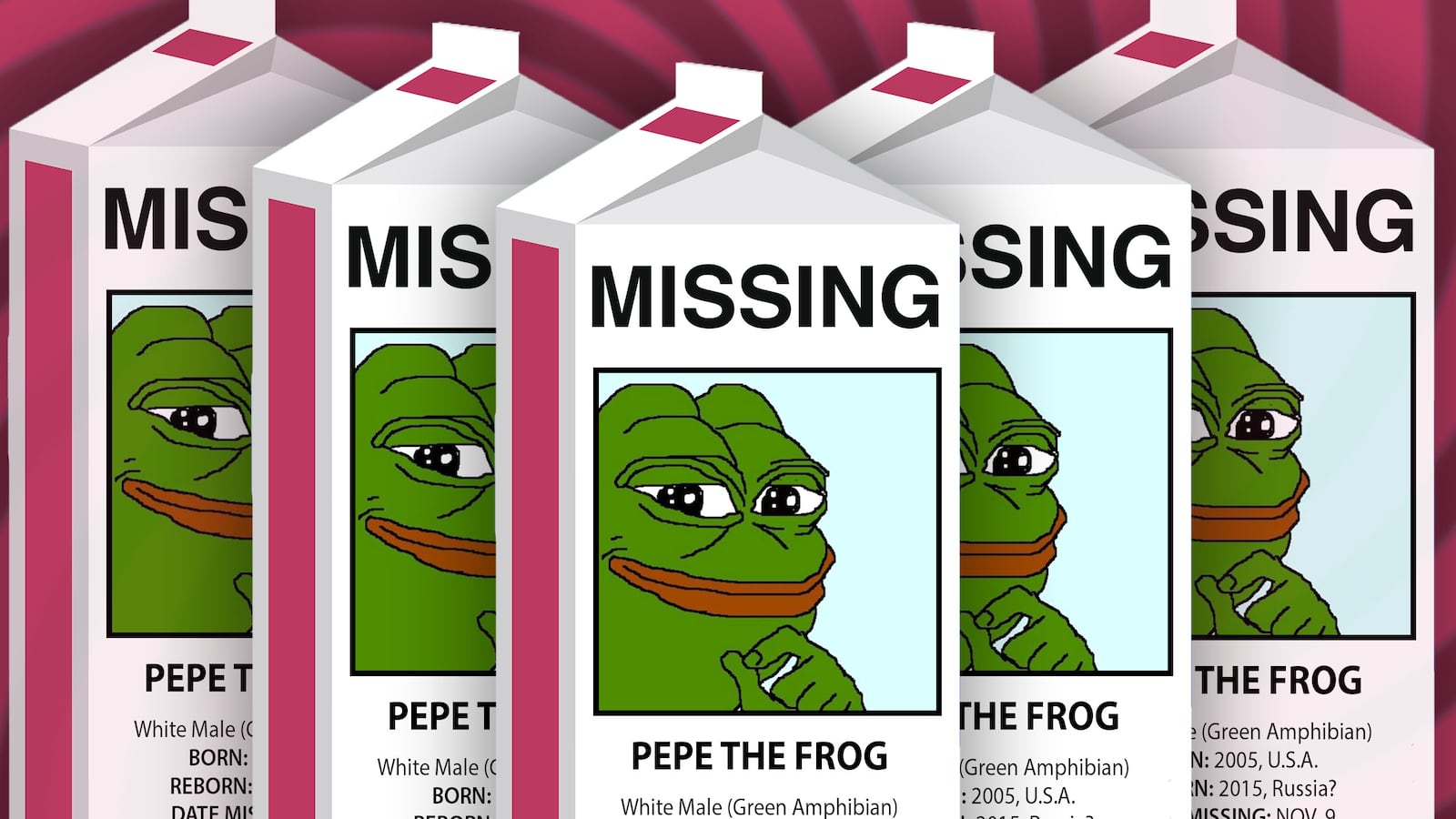When Clint Watts, a counterterrorism expert and fellow at the Foreign Policy Research Institute, testified before the Senate Intelligence Committee last week about Russia’s propaganda machine, it got me thinking about the messages pushing a toxic and divisive brand of white identity politics during the election. After Nov. 8, they miraculously disappeared. Was this a coincidence?
Although these tweets never changed my political opinions, I found them dispiriting. I had always assumed there was a small percentage of people on the right who held these unseemly views. But—based on what I began seeing during the 2016 election cycle—I had to reassess this estimation. The information coming across my Twitter timeline suggested there were far more of these trolls than I had thought.
The reason, I assumed, was the rise of the “alt-right,” a heretofore anemic movement that even after Trump’s win managed to attract a mere 300 followers to its Washington, D.C., conference.
Maybe this pernicious ideology had lain dormant―unenthused and unexploited―only to be awakened by Donald Trump’s candidacy—and then to recede after his victory.
There seemed to be a perfectly rational reason that Pepe the Frog disappeared from my timeline right after Election Day; in mid-November Twitter purged some high-profile alt-right accounts.
Then I heard Clint Watts on Meet the Press this Sunday, and he said that while we are focused on hacking and leaking, what Russia really did was to “create information nuclear weapons” that were spread over social media to “undermine trust, create divisions, and foment chaos.” This involved the use of bots, he said, “to create what look like armies of Americans.”
“It wasn’t till 2015 they really turned towards the U.S. election,” Watts explained.
Coincidentally, 2015 is the year I started noticing this trend, which I documented in a column titled “Twitter’s Right-Wing Civil War.” Watts has said this was in “full swing” during the presidential primaries and that they “pushed for Bernie Sanders at times too.” Sen. Marco Rubio told the committee that his former presidential staffers had been hacked.
It’s impossible to prove (even Watts and his highly-credentialed comrades, Andrew Weisburd and J.M. Berger viewed this investigation as a hobby) but I am convinced that at least some of the tweets I was seeing during the 2016 election cycle—perhaps many of them—were the Russian propaganda products. I suspect that part of their job included trolling opinion leaders and “working the refs,” if you will.
During a phone call on Monday, Watts told me that “Active measures deliberately go after journalists and media personalities that are anti-Russian.” During our talk, Watts and I also discover a similar observation. There was always a delay in time between when we tweeted something and when the pushback came (and by pushback, we’re talking about dozens—or hundreds—of tweets). Watts speculates that offending tweets would be marked and placed in a queue to be targeted later. If the attacks were organic, they would either be spontaneous and immediate or the result of some publicity (for example, let’s say a media outlet or blog highlighted a tweet you sent). That wasn’t the pattern.
This, of course, was not the total extent of Russia’s interference in our elections. Former Vice President Dick Cheney recently said Russia’s meddling in our elections could be considered an “act of war.” The New York Post claims the Russians tried to push conspiracy theories to Donald Trump, via Twitter. And according to Sen. Angus King of Maine, they also “pushed and probed into state election systems around our country—registration rolls, voting machines.”
Luckily, Russia wasn’t able to “hack the election” in America via voting machines, although they might well have tried. But they still used our own freedom and technology to advance their propagandistic aims. According to one colleague who covered this issue, “Twitter could very, very easily eliminate all bots almost instantly with Captchas. But then they’d lose maybe as much as 20 percent of their daily active users, which they can’t afford as a business. They seriously, at any moment, can cut off a pipeline in a worldwide disinformation campaign, but won’t.”
Therein lies the ultimate irony. Whether it was cable TV covering Trump rallies live for the ratings, websites operating as “useful idiots” by posting fake news for clickbait, or Twitter declining to take the issue of bots as seriously as they should, all of these decisions make sense in the context of the media’s profit motive. America spent decades battling the Soviet Union, in part to preserve free expression and capitalism.
Now, employing a bit of jiujitsu, Russia is turning both against us to undermine our faith in democracy.





